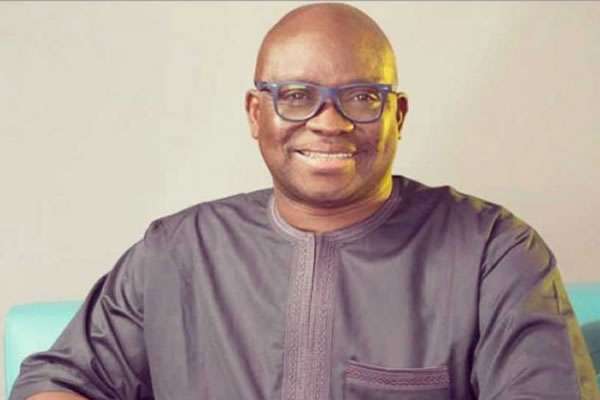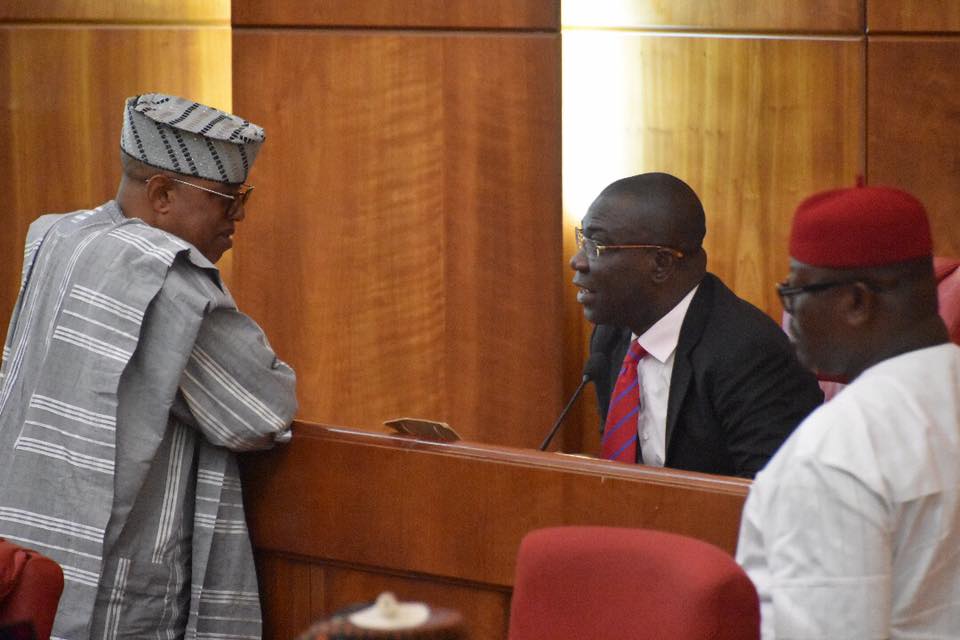By Abdulahi Osi
“I belong to everybody and I belong to nobody” – President Muhammadu Buhari
It was May 29 2015 when that speech was made by the then newly inaugurated President Muhammadu Buhari. That punchy line resonated across the country, from the vast landscape of the north to the forest region of the south. The long awaited nemesis of the chronically corrupt and unrepentant enemies of good governance has arrived. It shall no longer be business as usual. The optimism on the part of the citizens was infectious.
From a backdrop of a beaten and battered economy, widespread insecurity and a massively looted treasury, President Buhari served to the citizenry a three pronged dosage as antidote, namely- Anti-corruption war, security and economic rejuvenation.
It is common knowledge that the most potent weapon in the kitty of General Buhari was the famed iron cast integrity earned over the years in the course of his service to fatherland. To clean the Augean stable of 16 years of filth left behind by the former administrations of the retreating PDP, he had committed himself to taking on corruption in every area where it reared its ugly head and there was no doubt on the part of Nigerians and other watchers that this difficult battle was capable of been won given the antecedents of its exponent.
The zeal and seeming determination with which the onslaught against graft commenced gave hope that, indeed, the nation was undergoing a rebirth; that a new Nigeria, free of malfeasance, was here.
But recent developments have given Nigerians and, indeed, international observers cause for serious concern. Is this war on course? Is the battle arsenal been evenly deployed to all troubled spots? Are some toes getting too big and too sacred to be stepped upon? More and more frightful questions continue to run through the minds of many. And rightly so, their doubts have not been unfounded.
As this article is being written, the nation’s media landscape is saturated with, perhaps, the most scandalous and most embarrassing story that promises to deliver the biggest blow to the anti-corruption drive of this government. It is the story of the former chairman of the Presidential Task Force on Pension Reforms Task Team, Mr Abdulrasheed Maina who the EFCC had declared wanted for monumental fraud, but was helped back to the country and reinstated to the public service with promotion. We will shed further light on this presently.
Only recently, the federal government approved the appointment of a fourteen member board to boost the arsenal of one of the duo of the country’s Anti-corruption specialized agencies, Independent Corrupt Practices and Other Related Offences Commission, ICPC. On that list of anti-corruption warriors was Maimuna Aliyu. She would have made her way through but for the prompt intervention of the fourth estate of the realm, the press and other concerned Nigerians who took it upon themselves to keep watch over our fragile democracy.
In reaching a conclusion on such sensitive appointments, one must have thought that proper background security checks would have been carried out to ensure a high level of uprightness in character and reputation of those in whom we would be placing our collective aspirations in routing the disaster that corruption and all its vice have bedeviled us with.
But as it was later made known, bringing Maimuna Aliyu’s name for such a position was a grave error that shouldn’t have happened in the first place, given that there was an ensuing topnotch investigation into alleged corrupt activities by Maimuna by agencies of the federal government, the Nigerian Police and the EFCC.
Littering the media landscape were series of incriminating documents on how Aliyu as an ex-banker, allegedly used her position to confer corrupt advantages upon herself, appropriating to herself property valued at over N1billion.
Only last week, the Federal high Court in Abuja, ordered an interim forfeiture of 14 properties owned by former FCT Minister, Bala Mohammed over alleged corruption, abuse of office, corrupt practices and money laundering were among the charges instituted by the EFCC. The court further noted that the said properties are reasonably suspected to be proceeds of unlawful activities and crimes kept and concealed in names of ‘proxies and nominees’ of the ex-minister.
Guess those the Judge, Justice Nnamdi Dimgba found culpable and said to be at the vanguard of this despicable act, fronting as proxies in the pilfering of our commonwealth? Yes, same Maimuna Aliyu, among others.
Indeed, the eagle-eyed section of the media had also reported the content of a letter addressed to the Federal Ministry of foreign Affairs by Maimuna Aliyu titled “RE: APPEAL FOR INTERVENTION TO RECOVER MY INVESTMENT WORTH $3.05M” where she sought for recovery of her funds (One Billion, One Hundred and Fifty Nine Million Naira) invested into some real estate ventures in Dubai. For an ex-banker who lived on a monthly emolument while in service. How did this come about; was the question begging for answer.
And to think that this same ex-banker with such serious credibility question still to be solved would have made it to the ICPC board leaves observers short of words.
The ICPC Board appointment misstep is just one of the series of unfolding events that are daily rubbishing the gains of the anti-corruption campaign and depleting the credibility this government initially enjoyed at the onset of the battle.
Take the recent open altercation between the Minister of State, Petroleum, Dr Ibe Kachikwu and the Group Managing Director of NNPC, Dr Maikanti Baru. Pointedly, Kachikwu accused Baru, among others, of awarding contracts totaling $24 billion without due process and without recourse to the Board of the corporation. The contracts include: the crude term contracts valued at over $10billion, the Direct Sale Direct Purchase, DSDP contracts valued at $5 billion, the AKK Pipeline Contract valued at $3 billion, various financing allocation funding contracts with the Joint Venture oil Companies to the tune of $3 billion.
Baru’s defence was that the said contracts went through due processes and was approved by the President, who also doubled as the substantive Minister of Petroleum Resources. What Baru however failed to explain is if it was statutorily tenable for the Board which was supposed to formulate the workplan and the Budget of the Corporation not to be carried along in the award of contracts of such monumental proportion.
After all sides have stated their cases and all dirty linen washed in the open, one major take away was that impunity and corruption are still firmly entrenched in the nation’s oil sector and that some sacred cows can still get away with any malfeasance even without the proverbial slap on the wrist. How does this help the war against graft? How does this help to build confidence and engender trust in the government’s much touted determination to fight corruption to a standstill?
All these questions are being raised even while the grass cutting contract scandal which led to the suspension of the Secretary to the Federal Government, SGF, Babachir Lawal and the riddle surrounding the discovery of millions of dollars at a location in Lagos are yet to be laid to rest. Several weeks after the Vice-President, Yemi Osinbajo led panel set up by Mr President submitted its report, the nation is still kept in suspense, in matters that ought to have been treated with utmost dispatch.
Mr Lawal, as the Secretary to the Government of the Federation, SGF, allegedly used a company, Rholavision Engineering Ltd, while his name was still on its directors’ list, to secure a N230 million contract to clear “invasive plant species” in Yobe State.
The Senate ad-hoc Committee that investigated the contract scam found out that some tidy sum of N450 million was paid into the Ecobank account of Lawal’s Rholavision by five different companies which also benefited from the grass cutting contracts which was awarded by the now suspended SGF.
In a related scandalous development, the EFCC last April, following a whistle blower’s tip off, found a pile of currencies in an apartment in Ikoyi. By the time the counting was concluded, the currencies included: $43.4 million, N23.2 million and £27, 800. A shocked nation was still wondering who could have turned a living apartment into a cash warehouse, when it was treated to further absurdities as the Director-General of the National Intelligence Agency, Mr Ayodele Oke, claimed that the huge pile of cash belonged to his agency. A government Agency? With such huge amount in cash? For what purpose? Under which appropriation?
Following the decision of the President to set up a high powered committee to look into these two unsettling developments and come up with all the facts, and subsequent submission of the report to the President since August 20, Nigerians had largely awaited a Presidential pronouncement on them. The silence from the seat of power since then has remained very deafening.
Does this not amount to a major setback for the War Against graft? Does this not take a big chunk out of the credibility rating of this government regarding its avowed desire to stamp out corruption?
Concerned citizens were still analyzing the disturbing turn of events and taking stock of the reverses the anti-graft battle has recorded when the Maina bombshell dropped. Now, this is a major devastating and damaging blow on whatever may have been left of the anti-graft campaign.
Abdulrasheed Maina, the former Pensions Czar who was accused of fleecing retired people of billions of naira and fled the country to escape arrest and trial, was, under the watch of a corruption fighting government, smuggled back into the country and not only reinstated but given double promotion, a reward(?) for the agony and deprivation he threw hundreds of tired and retired senior citizens of this country into.
Although President Buhari intervened and ordered his sack and investigation of how this happened, the fact that it happened at all, under the watch of a regime that parades itself as anti-corruption warriors, has left a permanent dent and irreparable damage to the campaign. Can this government still reverse the losses already suffered and rev the anti-corruption battle back to life? The answer lies in the womb of time.
Abdulahi Osi, Osi wrote in from Ajaokuta, Kogi State

